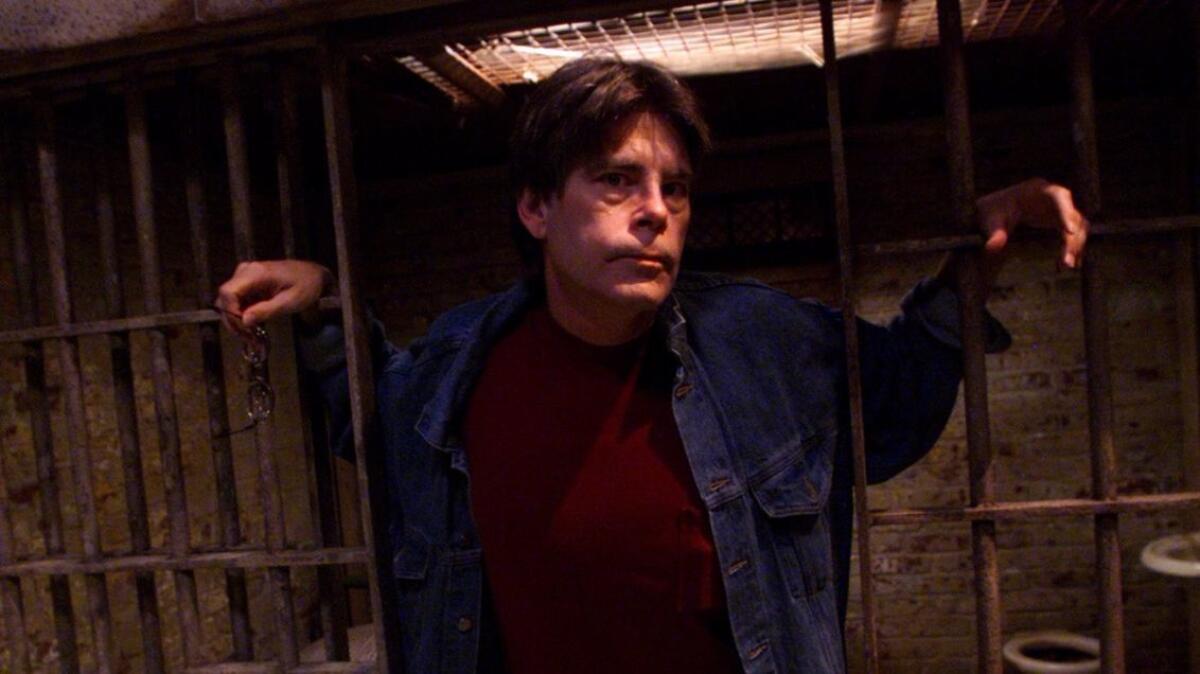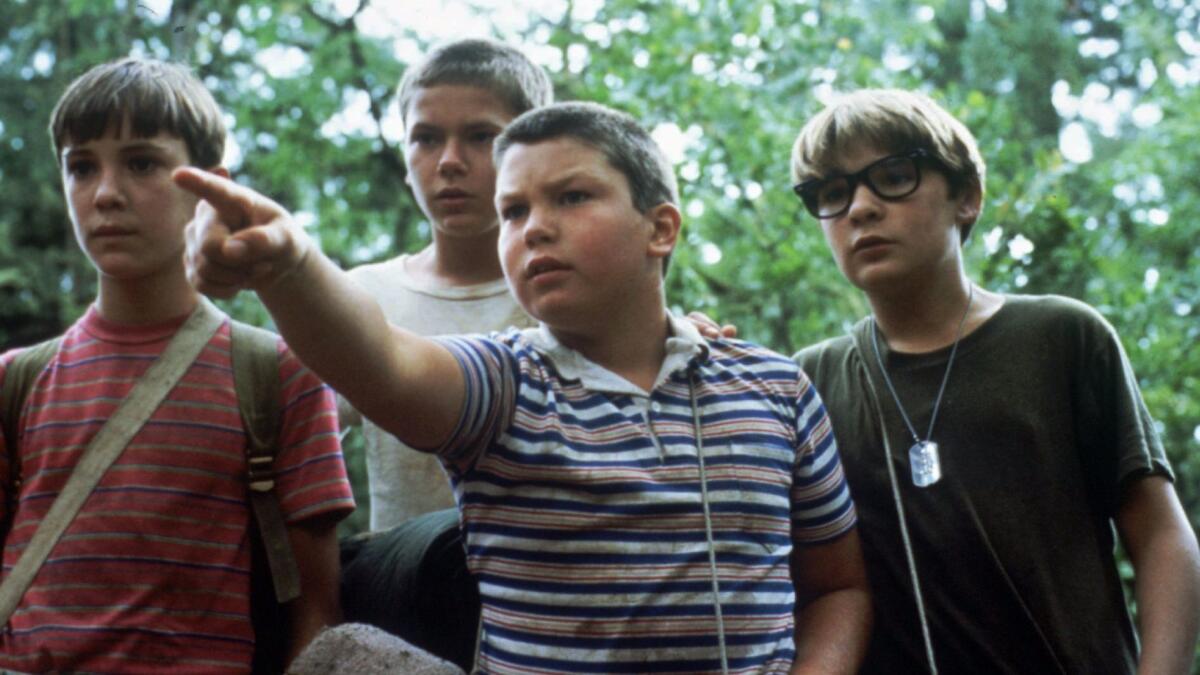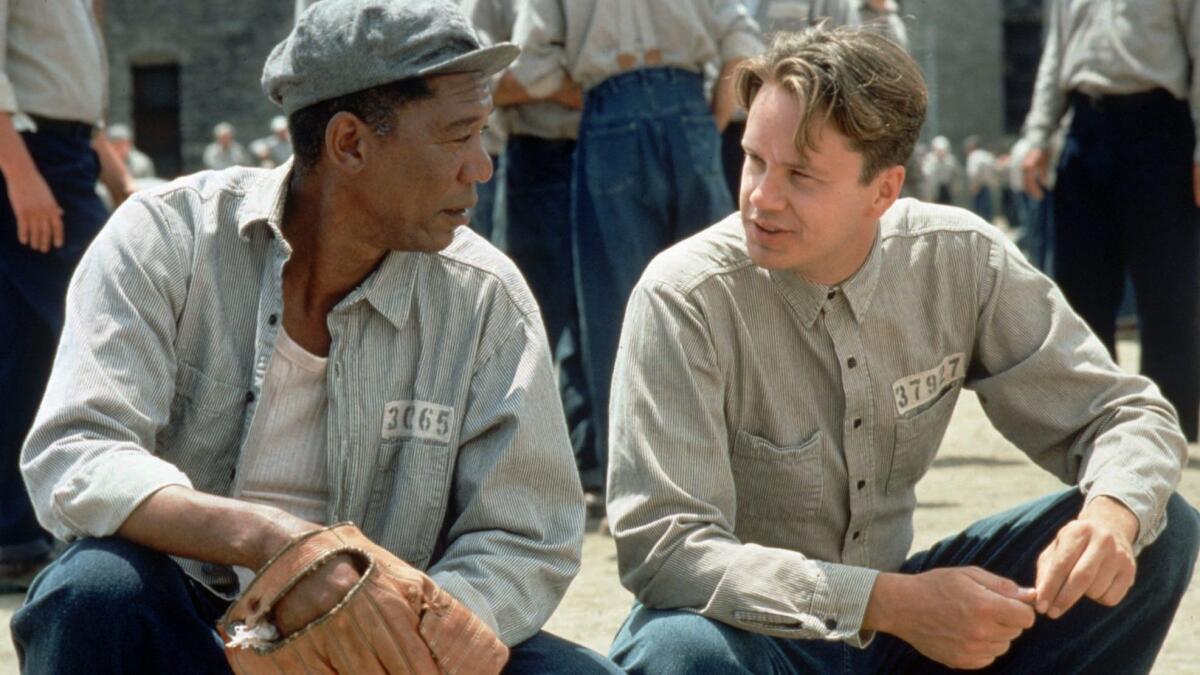An American Cinematheque retrospective shines a light on the best and worst of Stephen King film adaptations

The massively popular novels and stories of Stephen King do not insist upon their own literariness. Kingâs mastery of orchestrated tension and emotional release â of story and character â is never undercut by an overly fussy sentence.
When heâs firing on all cylinders, King is not just a commercial powerhouse, but a populist storyteller in the richest sense. His approach to the macabre is unfailingly straightforward and sincere, embracing darkness without cynicism. King is a lifelong resident of small-town Maine, and his flights of fancy are grounded by a lived-in sense of mundane Americana.
The directness of Kingâs approach over the past four decades has made him one of Hollywoodâs most dependable sources of original material; nearly every one of his novels and stories has been adapted for film and television. King has encouraged this process, making it a policy to grant the rights to his short stories to first-time directors for $1.
The lineup for American Cinemathequeâs upcoming three-week King-on-film retrospective, âThe King of Horrorâ (and the tepid reviews for last monthâs eagerly awaited âThe Dark Towerâ), suggests that itâs perhaps too easy to make a mediocre Stephen King movie. But over the years, many excellent filmmakers have used his stories to explore a wide variety of masculine fears and ambient hauntings, evoking unlikely emotional responses. In the movies, King has made his presence felt in two distinct genres: the horror film and the male weepie.

Idris Elba stars as the Gunslinger opposite Matthew McConaughey as the Man in Black in âThe Dark Tower.â
The retrospective, which kicks off Thursday at the Egyptian Theatre in Hollywood and the Aero Theatre in Santa Monica, offers the chance to assess the film versions of Kingâs work â from the startlingly good to the outright horrific.
King famously hated Stanley Kubrickâs blackly comic 1980 take on âThe Shining,â but the film is an unequivocal masterpiece, and the King adaptation that most obviously transcends (when it doesnât outright ignore) its source material. Kubrick re-imagines the homicidal novelist and hotel caretaker Jack Torrance (Jack Nicholson) as a grinning, boorish maniac given over to surreal forces, rather than the novelâs genuinely loving father turned alcoholic ax murderer.
Most of the filmâs most resonant imagery â the elevator of blood, âall work and no play makes Jack a dull boyâ â was invented wholesale. As the recent documentary âRoom 234â suggests, Kubrickâs âThe Shiningâ derives its otherworldly power from many potential sources, but Kingâs novel provided not much more than the skeleton.
Canadaâs David Cronenberg is no less obsessive an auteur than Kubrick, but his 1983 adaptation of âThe Dead Zoneâis perhaps his least overtly Cronenbergy film. Aside from a grisly suicide, the film mostly avoids the âVideodromeâ directorâs emphasis on the visceral. A youthful Christopher Walken stars as a kindly schoolteacher who, after a car crash, emerges from a coma with the unwanted power of extrasensory foresight. When he has a premonition about the unlikely electoral success of a authoritarian, nuclear-war trigger happy president (Martin Sheen), he agonizes over whether to take drastic action. Cronenberg trims Kingâs sprawling novel into an economical psychological thriller â a morality play racked by psychic torment.
Brian De Palma is another filmmaker with a heightened sense of the macabre, and his 1976 take on Kingâs first published novel, âCarrie,â starring Sissy Spacek as the telekinetic teen, is a horror classic with an operatic flair. In a film most often remembered for its bloody, intricately choreographed prom-night reckoning, De Palma invests the material with bombast and perverse humor.
The 2013 remake of âCarrieâ from âBoys Donât Cryâ director Kimberly Peirce could have been a significant response, a feminist gloss on Kingâs rawest reckoning with adolescent sexuality. But MGM demanded major changes to Peirceâs first cut, and the version released in theaters sometimes feels like a shot-for-shot remake of De Palmaâs original. Still, it deserves another look: Peirce updates the story for the social-media age, and finds new depth of feeling in Carrieâs persecution. Fans have petitioned for the release of Peirceâs directorâs cut, so far to no avail.
Rob Reiner had a more harmonious relationship with Kingâs work. âMisery,â his 1990 film about an injured writer of genre fiction (James Caan) who is kidnapped by a deranged nurse super-fan (Kathy Bates, in an Oscar-winning performance) and forced to resurrect a beloved character, remains a crackerjack claustrophobic thriller, capitalizing on a deliciously nasty setup by emphasizing the writerâs snobbery and the kidnapperâs warped insight.

Reinerâs 1989 coming-of-age tearjerker âStand by Me,â based on the novella âThe Body,â helped cement Kingâs reputation as a nostalgist of white baby-boomer Americana. The film remains both tough and melancholy, a kid-friendly adventure of sweetness and affection thatâs haunted by Kingâs fascination with death.
The film that might benefit most from a theatrical screening is Frank Darabontâs âThe Shawshank Redemption,â which earned its unlikely yet enduring status as an American movie touchstone â permanently entrenched atop IMDbâs user-voted top 250 films of all-time â through video rentals and wall-to-wall showings on basic cable. A sentimental, old-fashioned prison drama adapted by an unknown filmmaker from an unheralded King novella, the film was initially a box-office bomb that earned only $16 million on a $25-million budget. But in the intervening two decades this story of saintly endurance has been embraced by mass audiences as a kind of religious experience.

Seen today, âShawshankâ is still plagued by convenient plotting and syrupy voice-over narration â itâs a modest movie rather than a great one. But it treats male friendship with such warmheartedness and sensitivity that it still feels unique. In 1999, Darabont would attempt to repeat the trick in âThe Green Mile,â another patient, quietly uplifting prison epic based on a King novel, with wobblier results.
The most powerful King adaptations take considerable liberties with the source material, either leaning into or lightly ironizing the storiesâ moralistic core. But the reliable King everyman, a reluctant hero grappling with an unwanted gift that keeps him at odds with society, is now a familiar and durable archetype of the big screen.
Info box:
The King of Horror
Egyptian and Aero theaters (Hollywood and Santa Monica)
Thursday, Aug. 24, 2017 - Sunday, Sept. 17, 2017
$12
www.americancinemathequecalendar.com
(323) 466-3456
More to Read
Only good movies
Get the Indie Focus newsletter, Mark Olsen's weekly guide to the world of cinema.
You may occasionally receive promotional content from the Los Angeles Times.










